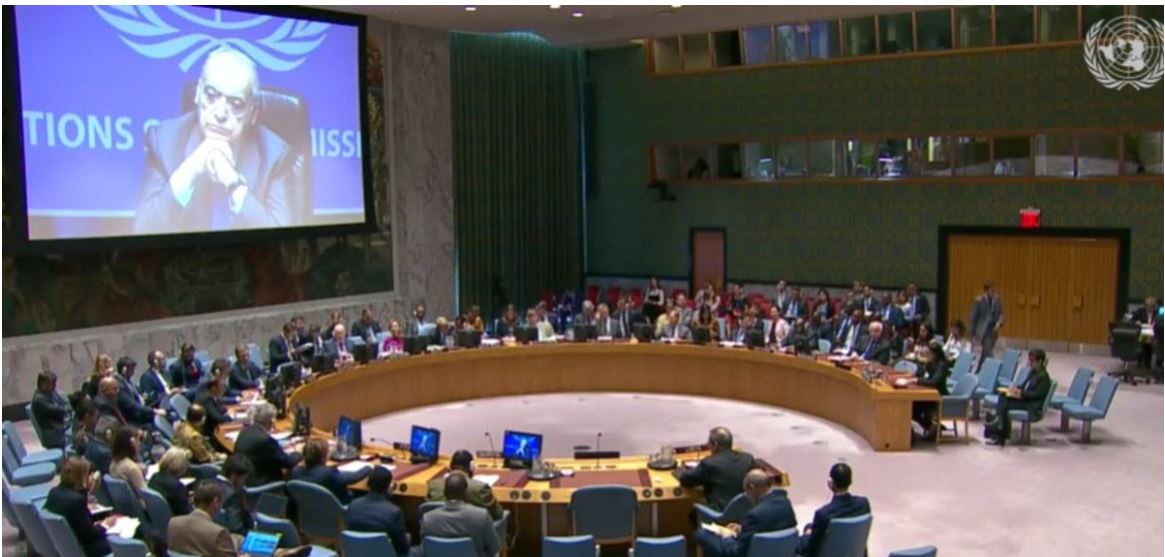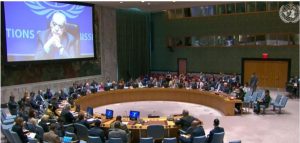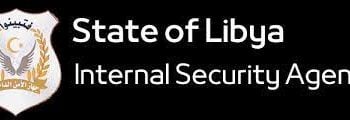By Sami Zaptia.
London, 31 January 2020:
UNSMIL head Ghassan Salamé, briefing the United Nations Security Council on Libya yesterday, said that ‘‘there are unscrupulous actors inside and outside Libya who cynically nod and wink towards efforts to promote peace and piously affirm their support for the UN. Meanwhile, they continue to double down on a military solution’’.
He reported that since 12 January UNSMIL had recorded over 110 reported violations of the 8 January agreed truce called for by Presidents Putin and Erdogan of Russia and Turkey respectively, adding that the truce exists ‘‘only in name’’.
Salame lamented the fact that both sides were receiving military reinforcements – despite the Berlin outcomes – in a brazen violation of the UN Security Council arms embargo
The war over Tripoli had resulted in more than 120,000 people being forced out of their homes in the fighting zones and 120 schools forced to shut down.
He called on a UN Security Council resolution endorsing the Berlin conclusions.
Here is his full brief to the UN Security Council:
Mr. President, (Ambassador Mr. Dang Dinh Quy, Viet Nam),
Members of the Security Council,
I am pleased to be joining you from Brazzaville where I have attended the 8th Summit for the Heads of State of the African Union’s High-Level Committee on Libya hosted by President of the Republic of the Congo His Excellency Sassou Nguesso. In my intervention, I reiterated the UN’s strong partnership with the African Union as we work together in the pursuit of peace and stability in Libya.
The Secretary-General briefed you on 21 January on the outcomes of the Berlin Conference and most importantly on the collective efforts that remain ahead of us to resolve peacefully the Libyan conflict. I will briefly update you on what has occurred since the Secretary General’s briefing. When we started preparatory consultations for Berlin in September 2019, at the peak of the war, we were under no illusions about the challenges of the task that lay ahead. We also knew that we had to mobilize in order to prevent Libya’s further downward spiral into chaos and civil war. I wish to express my gratitude to Chancellor Merkel and the Federal Republic of Germany for working relentlessly with us in the months leading up to the 19 January leaders’ gathering.
At the Berlin Conference, representatives of concerned countries and regional organizations, some of whom have directly or indirectly fuelled the conflict, agreed not to interfere in Libya’s internal affairs and to abide by the UN arms embargo. The final 55-point Berlin communique comprehensively tackles the full range of issues underpinning the Libyan problem set. It is buttressed by UNSMIL’s detailed operational plan which forms the basis for the Mission’s work in the coming period. Berlin was a serious effort to try to unify a discordant international community and to give hope to the beleaguered Libyans of the Summit participants’ provision of a protective international umbrella. This umbrella will allow the Libyans to restore a measure of their plundered sovereignty and come together to chart their way forward.
The Summit occurred against the backdrop of the truce called for by Presidents Putin and Erdogan on 8 January and accepted by both parties to the conflict. Following the 12 January commencement of the truce, there was an initial reduction in the violence that provided the residents of greater Tripoli a much-needed respite from the suffering of war. But with recent developments on the ground, I regret to report that the truce holds only in name. The artillery exchanges have significantly increased in Tripoli in recent days, with an associated increase in civilian casualties due to the use of indiscriminate shelling. Since 6 January, we have verified at least 21 civilian casualties (18 deaths and three injured) from conflict-related incidents in and around Tripoli. In the last two days alone, four children – all under the age of 12 — have perished as a result of shelling in the Al Hadhba area of Tripoli. Two of the children died at the scene of the attack while the other two died in intensive care; the last one died just yesterday afternoon.
We are also witnessing severe fighting outside of Tripoli. On 26 January, the Libyan National Army launched an offensive against the Government of National Accord forces in the Abu Grain area, south of Misrata, prompting heavy clashes with tens of casualties on both sides. These clashes were accompanied by fixed-wing strikes conducted by the LNA and drone strikes by both sides. While I am talking to you now, this battle of Abu Grain is still ongoing.
On 8 January, the LNA extended its unilaterally declared no-fly zone to include Mitiga airport. On 22 January, the LNA further extended this no-fly zone southwards towards Gheryan and Tarhouna and threatened to shoot down any military or civilian aircraft approaching Mitiga airport. Since that time, Mitiga airport has been shelled on three occasions, resulting in civilian casualties, damaging the civilian airport’s infrastructure, and temporarily halting air traffic. On 28 January, GNA forces reportedly downed an LNA drone in the vicinity of Misrata. Since 12 January, the Mission has recorded over 110 reported violations of the truce.
I am also deeply worried by the military reinforcements coming to both sides, raising the spectre of a broader conflict engulfing the wider region. The warring parties have continued to receive a sizable amount of advanced equipment, fighters and advisors from foreign sponsors, in brazen violation of the arms embargo as well as of the pledges made by representatives of these countries in Berlin. The LNA has reinforced its forces along the frontlines in Tripoli with arms, equipment and infantry elements, including foreign fighters.
Meanwhile, there has been a notable increase in heavy cargo flights – several per day – to Benina Airport and Al-Khadim Airbase in eastern Libya delivering military equipment to the LNA. Yesterday three boats were in Tripoli and Misrata delivering new weapons, and yesterday also, two cargo flights landed in Al-Khadim Airbase in the East. Of course, Tripoli is in the West.
At the same time, foreign fighters supportive to the GNA were flown into Tripoli by the thousands and deployed in forward locations, alongside Libyan forces. During this period, the GNA forces, supported by a foreign sponsor, established advanced air defence systems throughout the western region, to put it bluntly, Hawk antiaircraft [system]. As recently as Tuesday, the presence of foreign naval assets – including warships – was witnessed off the coast of Tripoli, in addition to cargo ships.
All of these manoeuvres to resupply the two parties threaten to precipitate a new and much more dangerous conflagration. They violate the spirit and the letter of the Berlin Conference. I urge the parties and their foreign sponsors to desist from reckless actions and instead renew their expressed commitment to work towards a ceasefire.
Mr. President,
As the Secretary General briefed you on 21 January, we received from both parties on 19 January in Berlin the full roster of names of their military representatives to attend the Joint Military Commission (JMC) talks in Geneva. These talks form the pillar of the military track and they must be launched as soon as possible. I had hoped to be able to brief you today from Geneva with the talks having started on Tuesday. The GNA representatives are ready to engage and I personally met with them in Tunis on Monday to lay out the framework for the expected talks. The LNA delegation has of yet been unable to confirm its participation although I am scheduled to meet General Haftar in Rajma in two days’ time to push for the team to be dispatched without delay. It is imperative that the JMC meet under UN auspices to transform the truce, or whatever’s left of it, into a ceasefire and to discuss the modalities for a ceasefire monitoring mechanism which I know is of great interest to this Council. The Commission will also seek to reach an agreement on long-term security arrangements, directly addressing grievances expressed by both sides. Your collective support to and engagement on this process is vital.
Consolidating the truce is critical for the success of our simultaneous and parallel efforts to start the Libyan Political Forum enabling the parties to discuss transitional institutional arrangements. However, the selection process of Libyan delegates to this endeavour has not been completed yet. On 10 January, I asked the presidents of the High Council of State and the House of Representatives to start, on the basis of each of the 13 electoral districts, a process to select delegates of the two houses for the Libyan Political Forum. I offered the support of UNSMIL to ensure that the process was inclusive, transparent, fair, and democratic. On 19 January, the High Council of State completed the selection of their 13 delegates.
Deep political divisions within the House of Representatives have been impeding the selection process of its delegates to the Libyan Political Forum. Yesterday, a district-based selection process of the 13 delegates started with the support of UNSMIL. I am pleased to report that, with UNSMIL representatives as witnesses to the process, three House of Representatives’ districts elected their delegates for the political talks. Yesterday’s effort sent a positive signal from the Parliament to the Libyan people that should be encouraged and replicated in ten other remaining districts. UNSMIL continues to be on standby to assist the rest of the districts to complete the process.
On the third and economic track, following their first meeting on 6 January, Libyan experts representing the main national institutions as well as the different economic sectors, are developing the terms of reference of the Libyan Expert Economic Commission. We have issued invitations to the second economic meeting to take place on 9 February, in Cairo and have received an enthusiastic response from the participants. On 7 January, UNSMIL convened a second meeting of the second track dialogue between the two branches of the Central Bank of Libya to develop a roadmap for their eventual unification. The completion of the international audit of the two branches of the Central Bank of Libya remains critical for transparency and creating the conditions for eventual unification. While we have made significant progress and hope to soon begin the audit, there have been no shortage of challenges and we will continue to rely on the strong support from the Security Council to move forward with this process.
The International Follow-Up Committee to the Berlin conference will get underway in the coming weeks with the formation of four working groups focused on the political, military, economic, and international humanitarian law/human rights tracks. These mechanisms will ensure that the hard work ahead of Berlin continues and that those who obstruct the process, whether inside or outside Libya, can be held to account.
Mr President,
The economy in Libya is becoming increasingly unstable due to the conflict. Institutional fragmentation and the inability to enact a unified economic policy is exacerbating existing challenges and creating new ones. On 18 January, the National Oil Corporation (NOC) declared force majeure on oil exports from ports in eastern Libya following local protests against the ports. On 20 January, the NOC extended the force majeure to all onshore ports following pressure exerted by LNA-aligned forces to shut down production in the Sharara, Hamada and al-Feel oil fields. Oil production will soon be reduced to 72,000 barrels per day, only coming from Libya’s offshore sites. The blockade results in losses of approximately USD 55 million per day in national revenue; as of today, the cumulative lost revenue as a result of the blockade has reached over $622 million. When I say 72,000 barrels per day, it is to be compared to what the situation was two weeks ago, where the production was almost 1,300,000 barrels per day.
Libya’s national debt has now surpassed 100 billion dinars and is spiking upwards. Expenditures on salaries proliferate as competing authorities add to an already bloated payroll. Government subsidies, both hidden and overt, continue to increase as the quality of services diminishes. Cuts to customs tariffs and taxes are narrowing Libya’s revenue base making the country entirely reliant on oil exports – which are now stopped — and fees on foreign exchange. Commercial banks find it increasingly difficult to operate under the supervision of two competing central banks; a number of commercial banks, particularly in the country’s east, are now either unable to honor transactions or will soon reach this point. While the Mission continues to work to find halfway measures to keep the economy afloat, fully addressing the situation requires a political solution that allows for more fundamental economic reform and institutional reform.
Mr. President,
The humanitarian situation remains deeply concerning. More than 150,000 people have been forced from their homes in the Tripoli area since the conflict began in April. As of 22 January, nearly 120 schools in Ain Zara and Abu Salim in Tripoli remain closed after a number of schools reopened following the truce, depriving at least 70,0000 children of their basic human right to an education. A total of 26 health facilities have been damaged to varying degrees due to proximity to the clashes, including 12 health facilities that have been closed and another four remain at high risk of closure.
At least 953 migrants, among them 136 women and 85 children, were returned to Libya in the first two weeks of 2020. Most were disembarked in Tripoli and all were taken to detention centres where they are routinely subjected to serious human rights violations and abuses. These returned migrants are among the more than 1,000 who have left Libya by sea since 1 January, driven in part by the heaviest clashes Tripoli has seen since hostilities began nine months ago. The increase in departures is alarming given the very limited search and rescue capacity in the Mediterranean. On 27 January, UNSMIL and OHCHR issued a joint report on the 2 July airstrike on the Tajoura Detention centre calling for accountability for violations of international law, and urgent action to prevent a repeat of a similar incident. I regret [to learn] that according to the most recent news, the UNHCR has stopped its activities in the Gathering and Departure Facility (GDF)Centre it has created because the safety is not ensured, due to some training exercises taking place very close to the centre.
I am concerned about credible reports of serious human rights violations in Sirte including enforced disappearances and arbitrary detention by armed groups since the LNA took the city on 6 January. There are reports of families forced to flee, some due to their affiliation with the GNA and others due to their association with elements of the former regime. UNSMIL has received reliable reports of hundreds of prisoners from at least four towns and cities in western Libya, including Tripoli and Khums, being released contrary to Libyan law, in order to fight on behalf of the GNA, in exchange for promised freedom following the end of the conflict. We have also received reports of summary executions and revenge killings in Tripoli and in nearby Tarhouna, which is under the control of forces loyal to the LNA.
The fate of many forcibly disappeared Libyans remains unknown. Over a half year has passed since Siham Sergewa, a member of the House of Representatives, was seized at night from her home in Benghazi. I reiterate that the authorities in eastern Libya are responsible for respecting international human rights law and are legally obliged to establish the fate and whereabouts of Ms. Sergewa. I welcome the joint statement issued by several Member States on 17 January and urge others with influence on the relevant authorities to demand her immediate release and the release of all victims of enforced disappearance and to hold to account those responsible.
In contrast to the malaise that has beset some in Libya’s political class, many other Libyans have not stood idly by in the face of the widespread use of hate speech and divisive rhetoric designed to tear apart the country. I applaud the civil society activists and tribal elders who have courageously raised their voices, especially in the past few days, in order to maintain social harmony among Libyans. I was heartened to see that a group of young activists in Benghazi issued a New Years’ Day call for a cessation of hostilities and a return to political talks.
Excellencies, members of the Security Council
It is my sincere hope that the momentum that was created on 19 January in Berlin, a real momentum, and here today in Brazzaville will be seized by this Council and by the Libyan parties. Libyans need to be given some hope that the international community has not abandoned them. Specific endorsement of the Berlin conclusions by this Council via the passage of a resolution would send a decisive signal to the Libyans but also to the spoilers – local and international alike – about the seriousness with which the international community regards this process.
But I must also be candid with you in expressing my deep anger and disappointment at what has occurred since Berlin. There are unscrupulous actors inside and outside Libya who cynically nod and wink towards efforts to promote peace and piously affirm their support for the UN. Meanwhile, they continue to double down on a military solution, raising the frightening specter of a full-scale conflict and further misery for the Libyan people, more refugees, the creation of a security vacuum and further interruptions to global energy supplies. All of this is done in blatant disregard of Libya’s sovereignty, the fundamental rights of the Libyan people, and in flagrant violation of international consensus and the rules-based international order. I hope that in the coming days, you can find your unity and your voice to halt Libya’s senseless unraveling. Too much is at stake, including our collective credibility.
Thank you.










